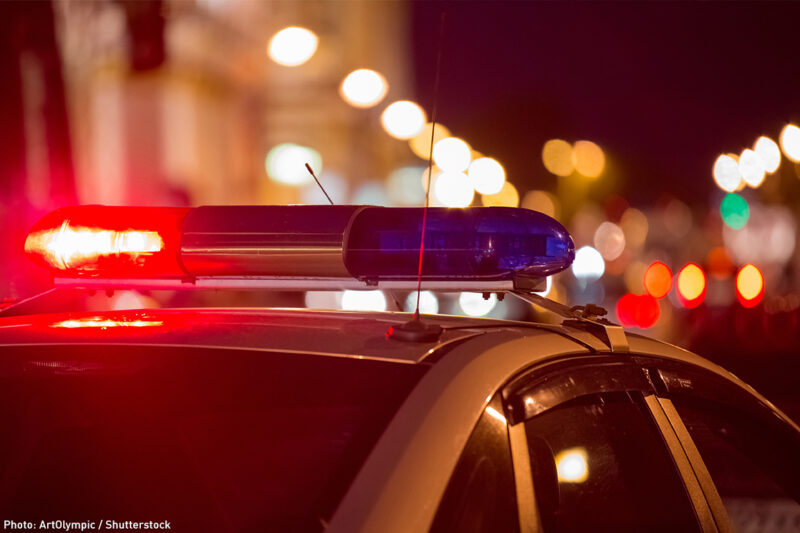
Too often, law enforcement lets itself be hijacked by a biased call to 911 ã usually a caller reporting a ãsuspicious personã who is actually just Black. In response to a spate of well-publicized incidents, that white people should avoid calling the police when an actual crime is not being committed. Thatãs a start. But police departments also need to retool how they respond to these calls.
Black people and other people of color shouldnãt have to endure police intrusions that lack a legal basis. When police enforce the racial biases of private citizens, they convert those biases into governmental discrimination. Furthermore, such arrests undermine the legitimacy of the police and carry disturbing historical echoes of when the law explicitly relegated nonwhite people to second-class status. By enforcing the will of white people to exclude Black and brown people from public space and everyday activities, these officers recall the role of law enforcement in and, before that, .
Thanks to the internet and cellphones, the nation at large has seen numerous examples of police acting on the racial biases of those who called them.
At a Starbucks in Philadelphia recently, a white manager called the cops on two Black men waiting for a business meeting, just minutes after they arrived at the coffee shop ã the police responded by arresting the two men. In a Yale University dorm, a white graduate student on a Black graduate student for napping in a common room ã the police responded by detaining the Black student for nearly 20 minutes before letting her back inside her own dorm room. At Colorado State University, a white woman on a campus tour called the cops on two Native American teens because they ãjust really stand outã from the others on the tour ã the police responded by pulling these prospective students from the tour to interrogate them.
In each of these incidents, the police let the callers use them to weaponize the callersã own biases, without exercising adequate independent judgment. That independent judgment begins with the dispatcher who answers the 911 call.
Department policies should instruct dispatchers not to unthinkingly send officers to respond to questionable calls with minimal information. When, for example, a caller reports a ãsuspicious person,ã the dispatcher should collect enough information to identify whether the caller has seen possible criminal activity that is worth an officerãs time to investigate. If it becomes clear that the caller is rather than vague or inarticulate, the dispatcher should have the discretion to tell the caller that they will not dispatch an officer without a legitimate basis.
That said, if they do decide to send an officer to the scene, the dispatcher should communicate information that lets the officer know of any concerns or reasons to take the reported facts with a grain of salt. A failure to pass along such information will necessarily expose people to serious risks.
For example, in ãs case, if the dispatcher had communicated the callerãs belief that Rice was probably a minor and that the alleged gun was ãprobably fake,ã Officer Timothy Loehmann might have taken time to investigate further instead of promptly shooting and killing a child for carrying a toy gun on a playground.
Once dispatched, the responding officer also needs to exercise independent judgment. The officer should keep in mind that the callerãs statements may not be reliable, and that get perverse satisfaction from forcing others into an involuntary encounter with police. Indeed, making false 911 calls to sic a SWAT or SWAT-style law enforcement team on someone happens often enough that it has its own term: ã.ã
There is a better way.
An in May in Tennessee shows how officers can defuse situations and protect people of color who are subjected to the frightening, often humiliating experience of being the subject of a racially motivated or otherwise unjustified call for police. A neighbor called the police on Michael Hayes, a Black real estate investor in Memphis, who was visiting a piece of property. After the police concluded the call was unfounded, they explained to the neighbor that Hayes had the right to be there and warned her not to interfere with his work. She responded by hurling invective at Hayes. At Hayesã request, the officers stayed for a few minutes to make sure he was able to complete his work unmolested.
By the end of the encounter, a surprised and relieved Hayes said, ãThe police, they were on my side.ã This should be the rule, not the exception.
Training police to resist enforcing other peopleãs biases is, of course, only a first step. Black and brown people should be able to trust the police to protect them when needed, while leaving them free to live their daily lives. To achieve equal justice, police policies and practices must prioritize the lives, dignity, and constitutional rights of all those they encounter. That starts with recognizing whether theyãre responding to a crime or to someone whoãs just afraid of Black people.
From Starbucks to Yale, the stories of racial profiling that have hit the news recently are disturbing ã but theyãre not isolated incidents. If youãre a person of color whoãs had the police called on you for inexplicable or racist reasons, share your experiences and ideas through the link above. We may use your story in an evolving collection that we will feature on our website.

